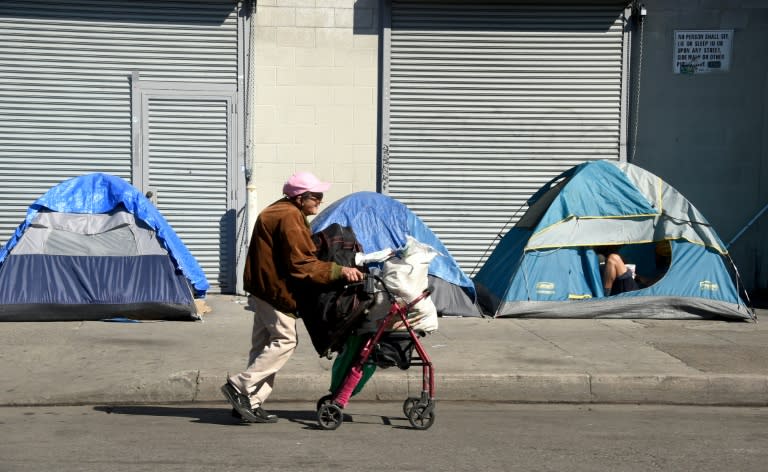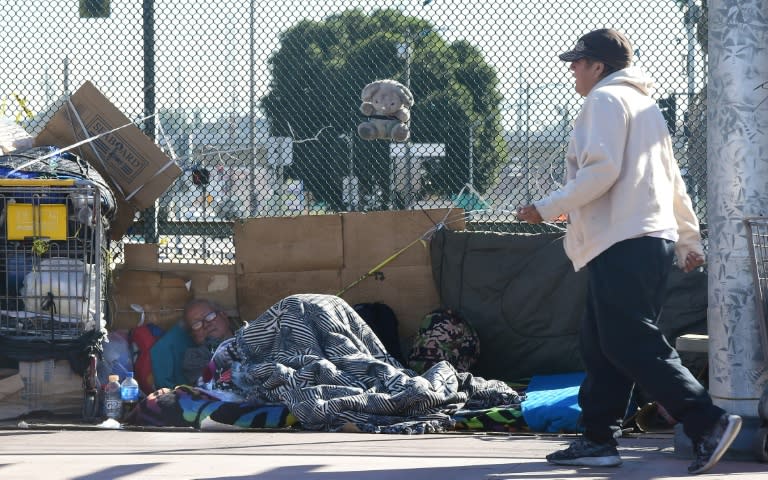Los Angeles passes $1.87 bn homeless plan
Los Angeles, sometimes called the homeless capital of America, adopted a $1.87 billion plan Tuesday to help its 44,000 down-and-out people without homes. The 10-year plan adopted by the city council, with the ambitious goal of ending LA's growing homelessness, includes hiring social workers, offering quality housing and building permanent housing. In addition, Los Angeles County supervisors also agreed to release $100 million over several years ($42 million in the first 12 months) toward housing the homeless. Homelessness is "the most serious humanitarian crisis confronting our county today," said county CEO Sachi Hamai. Plans for funding the initiatives still must be adopted, with the city of Los Angeles scheduled to vote on its budget in April. City Councilman Jose Huizar, who co-chairs the Homelessness and Poverty Committee, acknowledged that a series of past plans to reduce homelessness had failed. Between 2013 and 2015, the number of homeless in Los Angeles County soared by 12.4 percent, with the percent of those living in the street or in their car -- without access to emergency shelter -- soaring by 85 percent. Of the 44,000 homeless people living in the county, some 29,000 or two-thirds, sleep in the streets, tents or their cars, according to a spokesman for the Los Angeles Homeless Services Authority. The 2008-2009 economic crisis took a hefty toll on Californians, while housing inflation has drastically limited affordable options. In addition, many homeless opt to live in Los Angeles due to its mild weather and social services, notably near Skid Row, where some 5,000 homeless live. By comparison, the homeless population in New York, America's largest metropolis, is larger at 57,000 people, but 95 percent of them live in shelters or temporary housing funded by local authorities and the state. Los Angeles County spends around $1 billion a year on medical, psychiatric and social welfare care for its homeless, not including police expenditures. "A real bed is much less expensive than a jail bed or a hospital bed," Phil Ansell, director of the county's Homeless Initiative, told the Los Angeles City Council.




